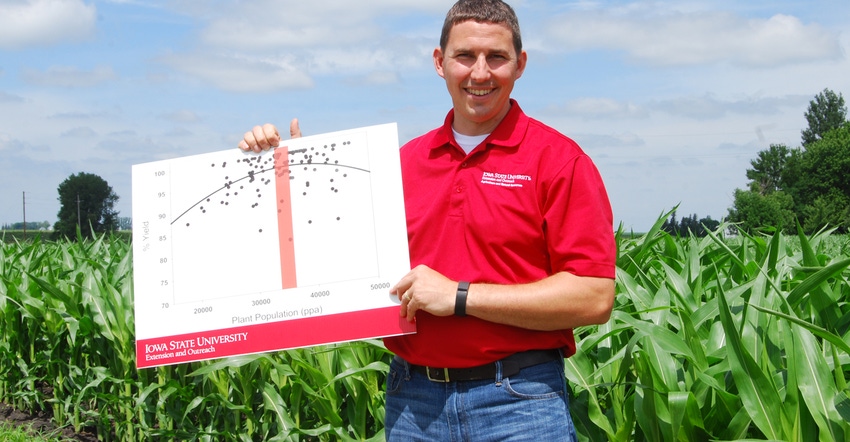February 16, 2017

Established in 2004, Iowa Learning Farms (ILF) has become a trusted source of conservation information and research, while helping build a “culture of conservation” by encouraging the implementation of conservation practices. ILF has welcomed Mark Licht back to its team with great pleasure.
As a graduate student in 2000, Licht was one of the founding members of the ILF team. He helped nurture the conceptual idea — awareness and promotion of conservation practices, which remain at the core of ILF’s mission today — into a funded and operational organization. At the start, the main emphasis was demonstrating high-residue tillage systems and working closely with farmers to do so.
With a three-person team — Licht, professor of agronomy Mahdi Al-Kaisi and ag engineer Mark Hanna — the program brought together Iowa State University Extension, Iowa Department of Agriculture & Land Stewardship, Iowa Department of Natural Resources, Iowa Farm Bureau, Conservation Districts of Iowa, and Iowa Natural Resource Conservation Service to form the steering committee that continues to help guide the program.
Three take-home messages
Since those early days of ILF, Licht has held several positions within ISU Extension. Most recently, he was a cropping systems specialist; and upon completing his doctorate, he was an assistant professor. As he pursued his degree, Licht looked at how soil properties and topography can influence seeding rate responses. His findings led to three take-home messages: weather masks the influence of soil properties and topography on crop production; in typical years, a topographic wetness index can determine optimal seeding rates; and soil properties and topography have little effect on grain composition compared to the actual seeding rate.
When not traveling the state with Extension, Licht is focused on Forecast and Assessment of Cropping sysTemS (FACTS), a cropping systems model that forecasts how soil, water and nitrogen dynamics change throughout the growing season and affect end-of-year yields. Through the project, Licht is diving deeper into field level and spatial interactions between row spacing and seeding rate. The combination of cropping systems modeling with in-field crop and soil measurements at specific field locations allows for the evaluation of FACTS and understanding crop performance interactions.
Licht envisions continued evolution of Iowa agriculture. “I see an increased emphasis on adoption of conservation practices, while sustaining yield potential and profitability at the farm level,” he says. “I think this will happen through market pressures as well as increased ability to adaptively manage cash crops.”
Conservation innovation
One of the strengths of ILF is making innovative conservation research accessible through print materials, videos and field days. One of the most memorable field day experiences for Licht was an August event where it was so cold that sweatshirts and coats were needed. “I suspected low attendance, and to my surprise, the turnout far exceeded expectations,” he says.
“Working with ILF again is invigorating. It’s a much larger team with more capabilities and an expanded target audience. That helps bring vibrancy and creativity to the program. I hope that I’m able to bring some new, fresh ideas,” Licht noted upon returning to the program. “I look forward to helping provide guidance on how to implement practices that are known to improve soil health and water quality into cropping systems.”
Licht has already helped cultivate a new ILF publication series to help landowners and tenants begin conversations about implementing conservation practices. These publications are now available online. To learn more about ILF and access the series, visit iowalearningfarms.org.
Juchems is events coordinator with Iowa Learning Farms. ILF is building a culture of conservation and calling attention to the importance of water and soil quality through conservation farming practices.
About the Author(s)
You May Also Like




